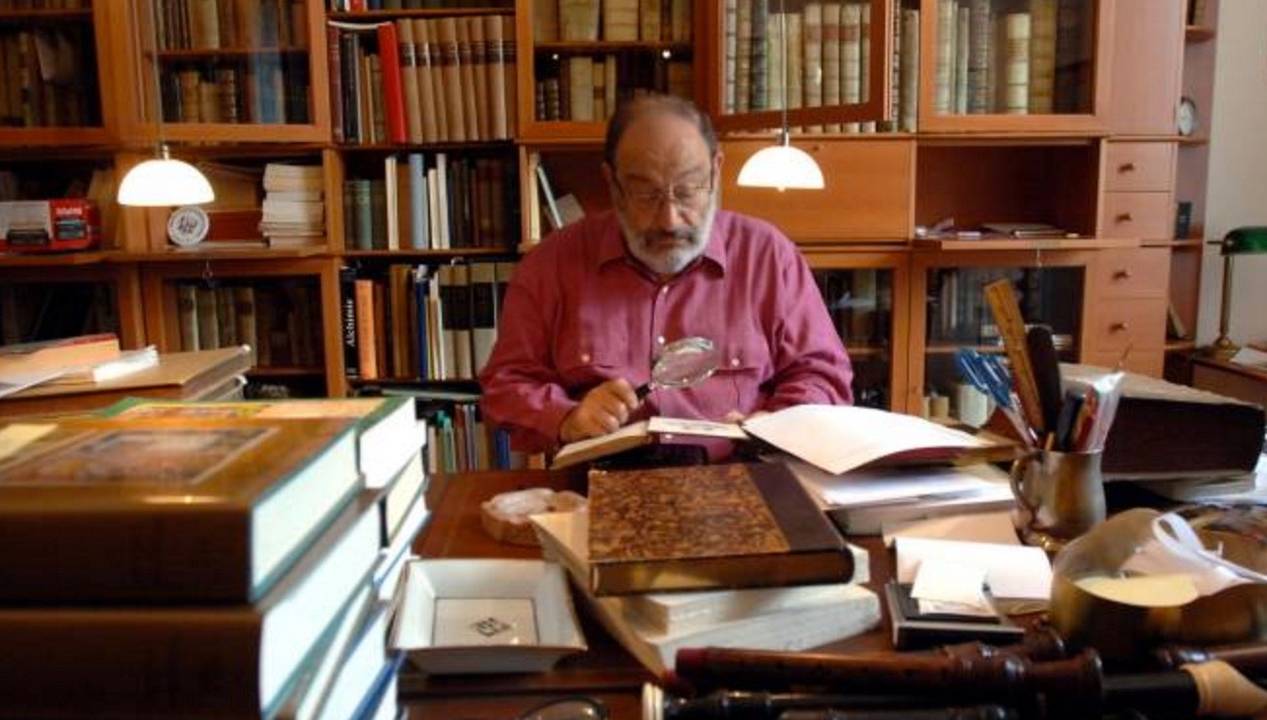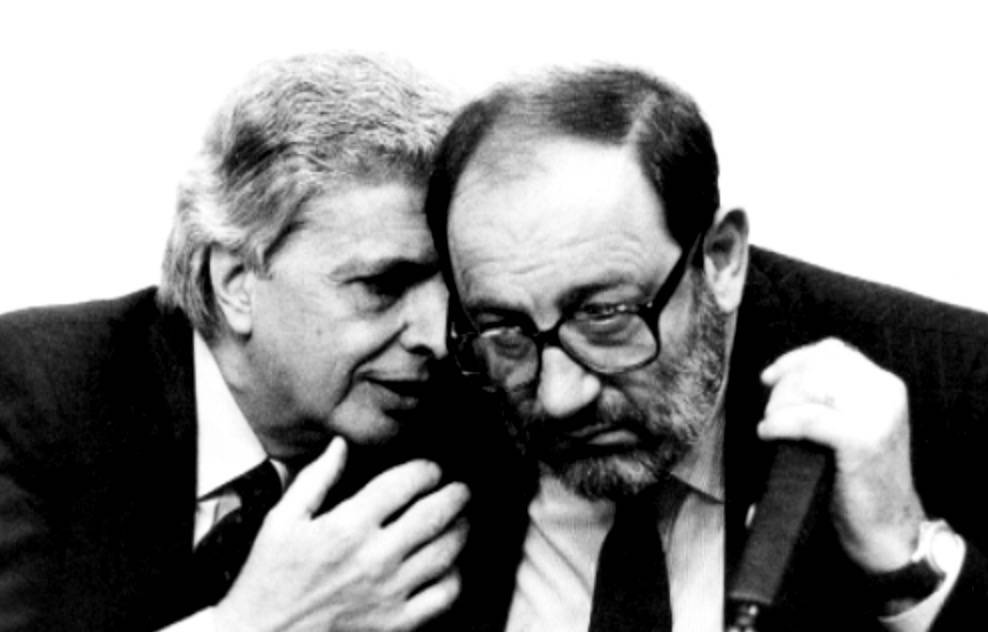Italy's Farewell Salute to Umberto Eco
They waited in line for over an hour, sometimes even fighting over precedence - students and housewives, politicians and pensioners, all anxious to pay a last salute to Umberto Eco, who died Feb. 19 at age 84.
At the funeral ceremony Tuesday in front of the Castelello Sforzesco in Milan, his wooden casket was blanket ed in wildflowers. Professor Eco lived in a bookshelf-lined, roomy apartment in a palazzo nearby with his wife of fifty years, Renata. His last words, she has related were, "I am shutting into myself like a hedgehog" (Mi sto chiudendo come un riccio).
Memories of Eco - echoes of Eco, one might say - continue to come pouring out. Speaking for the entire Eco family at the ceremony was 15-year-old grandson Emanuele, who thanked Nonno Umberto for, among other things, "the stories you told me, the books we read, the crossword puzzles we did together, the music we listened to, the trips we took. I'm so proud to have had you for a grandfather." For comic actor Roberto Benigni, a longtime close friend of Eco (and who elegantly declined to speak at the funeral Tuesday), "There was nothing special about him. But when he he arrived everything became special: he brought a light, a wind, that was good for the whole world."
Furio Colombo, another particularly close friend, told Italian TV viewers that he had spoken with Eco just five days before he died, and that Eco was "lucidly aware" that death was approaching. Asked if Eco liked to write, Colombo replied that Eco preferred the words "to work." A special memory? "Riding on my motor scooter with Juliette Greco and Eco."
Another special moment came in China, where young people were flocking to hear Eco speak but, once inside the auditorium, there were only old people because the Chinese authorities seemed to fear that Eco would contage their youth with rebellion. Why? Consider the implications of the words of another friend, Moni Ovadia.
The Bulgarian actor living in Italy told a joke in Yiddish that no one seemed to understand (so write the Milan reporters there), but ended his salute to Eco with an ironic, "The God who puts up with the believers and who loves us atheists blesses you."
Eco was remembered as so high spirited that his friends at the funeral said they were intermittently weeping at his loss and laughing their heads off at his memory.
He was endlessly ironic himself, saying back in 2011 that he absolutely "hated" his first and best-selling novel because whenever one of his five successive books appeared, sales of The Name of the Rose bounced up. "The others were better but the strange phenomenon was that every time you have a new book out sales of the old one go up. The ones after were better, but people reason that, 'Well, I haven't read the first so I should start with that.' And of course the old one costs only half...." (See: >>)
Journalist Francesco Merlo recounts that in Eco's country house in the Marches he and his wife kept a puppet theater which they had begun for the grandchildren, but which gradually acquired a life of its own, with performances for friends that became political satire. Among the puppets: Pope John Paul II. At home in Milan, near the famous Trivulzio Library, his two children, Stefano and Carlotta, grew up sharing space with their father's 30,000 or so books, carefully placed into a labyrinth of bookcases but also in piles here and there on the floor.
When Eco was already very ill, his friend Merlo also recalled, the semiologist walked with a cane for support but also because "it was a sign of command." Eco showed no sign of remorse, no regrets: "To get old is beautiful," Eco once told him. In another interview, this devoted to the phrase "to die laughing," about laughter and God, Eco had also said this: "Laughter does not save man from death. But it helps."




































i-Italy
Facebook
Google+
This work may not be reproduced, in whole or in part, without prior written permission.
Questo lavoro non può essere riprodotto, in tutto o in parte, senza permesso scritto.